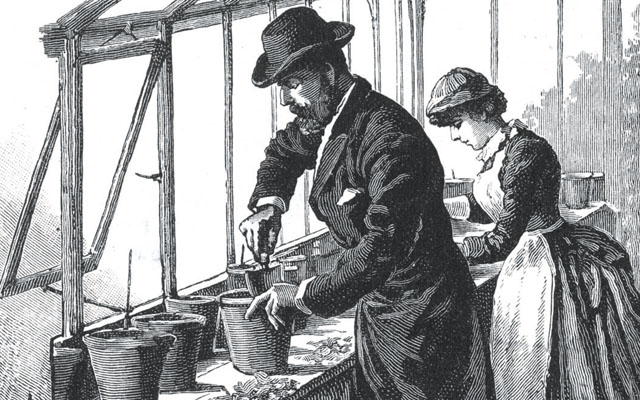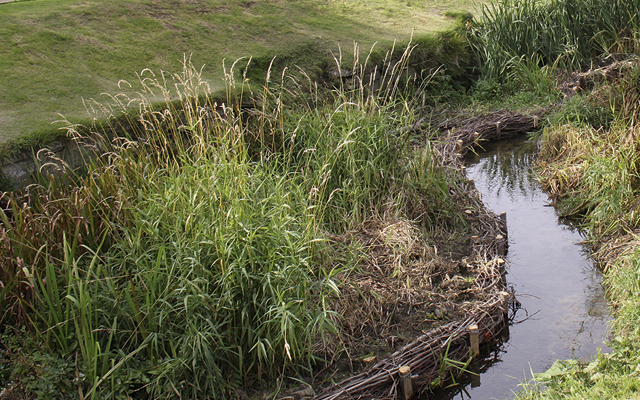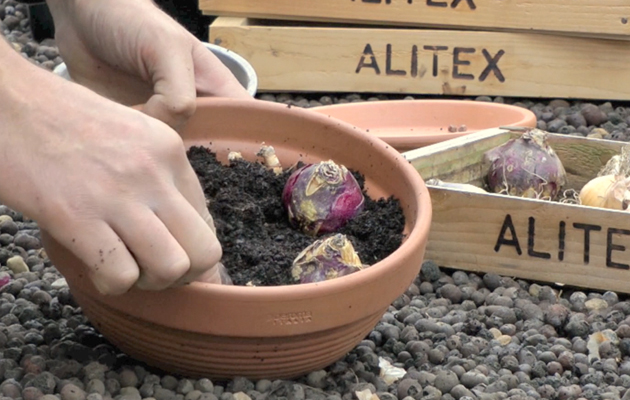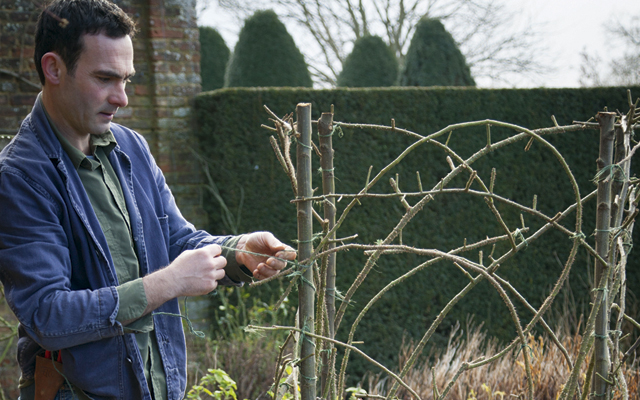How to move house and garden
How much of your garden can you take when you move house?


We are in the process of moving house and garden, too. Well, it’s sensible, at our age, to be closer to one’s children or so they tell us. It means we shall be exchanging 15 acres of fertile, sandy clay soil in the Cherbourg peninsula in France for two acres of south-facing chalk hillside in the Itchen Valley. Are we mad? Yes, because no parents should allow themselves to be bullied by solicitous children. No, because every time you start a new garden, it turns out better than the last. You know more about every aspect of gardening plants, colour, design, aesthetics, history and have learned from your past mistakes.
How am I preparing for our final move? We’re lucky to have access to the new garden before we actually up sticks. That means I can take over cuttings and pieces of plants and line them out in holding beds. Nevertheless, I have made a firm decision not to propagate any plant that I can buy in Britain. The only exceptions to this rule are plants of sentimental value and those that are rare enough for them not to appear in the RHS Plant Finder.
The sentimental ones include the Magnolia stellata my mother gave us before she died last year and the bulbs of Lilium pyrenaicum var rubrum that Graham Thomas gave me long ago. The rare, must-take plants are mainly unidentified roses rustled from derelict gardens all over Europe and the vast number of trees and shrubs collected in the wild by kind friends such as Martyn Rix and Maurice Foster. Plus the seedling roses, apples and cherries that I’ve raised from my own experiments in hybridisation.
But I have also put a condition in the contract for sale of our Normandy property that we shall have the right to take ‘reasonable quantities of propagating material’ from the garden for two years after completion of the sale. We have two full seasons to propagate any plant of great rarity or personal value probably longer than we shall need, but I recommend the clause to anyone who has to make a simultaneous sale and purchase at short notice. French lawyers tell me that they have never encountered such a provision, ‘but then, Monsieur, you English love your gardens’.
It’s very important to know what to expect in your new garden. The first requirement must be to check the composition and pH of your soil. If the vendors will not allow you to do so, you can consult one of the excellent 1:50,000 maps published by the British Geological Survey, which will help you to decide what may or may not grow.
It’s also worth looking at what is growing in gardens near your new house. I had always assumed that Liquidambar styraciflua, being closely related to Hamamelis, was strictly calcifuge impossible to grow where the soil is alkaline, let alone on pure chalk. But I’ve now seen three liquidambars absolutely flourish-ing in neighbouring gardens, so I will plant one after all.
I realise, moreover, that I am leaving acid soil that is excellent for rhododendrons and camellias and that, after moving, I will never be able to grow them again. But it will be wonderful to grow plants that need sharp drainage and warmth: no longer will Convolvulus cneorum and Bupleurum fruticosum succumb every year to winter wet.
Exquisite houses, the beauty of Nature, and how to get the most from your life, straight to your inbox.
What about trees? I’ve been making lists of desirable forms and species it’s odd how the urge to plant trees develops in inverse proportion to one’s chance of living long enough to see them grow to maturity. Then, there are shrubs that will revel in a warm, free-draining soil: Cistus hybrids, African buddlejas, lagerstroemias and loniceras. And think of bulbs and corms that will flourish on chalk: the drifts of daffodils, scillas, tulips, anemones and cyclamen.
Shouldn’t we all move house and garden more frequently? No, because making a garden is a long-term activity, a commitment that never relaxes. This will be our last garden.

How to make a Christmas wreath
Follow out step-by-step guide to making a garlanded willow wreath.

How to improve a stretch of river
A river provides sanctuary for fish, birds and insects. Ursula Cholmeley explains how to reinvigorate yours.

Alitex Series Video: How to pot bulbs for spring
Head Gardener at Hinton Ampner in Hampshire shows us how to pot bulbs in preparation for early spring flowers next

How to get ahead in the garden this winter
Getting a few winter jobs done in the garden prior to Christmas will set you in good stead.
Country Life is unlike any other magazine: the only glossy weekly on the newsstand and the only magazine that has been guest-edited by His Majesty The King not once, but twice. It is a celebration of modern rural life and all its diverse joys and pleasures — that was first published in Queen Victoria's Diamond Jubilee year. Our eclectic mixture of witty and informative content — from the most up-to-date property news and commentary and a coveted glimpse inside some of the UK's best houses and gardens, to gardening, the arts and interior design, written by experts in their field — still cannot be found in print or online, anywhere else.
